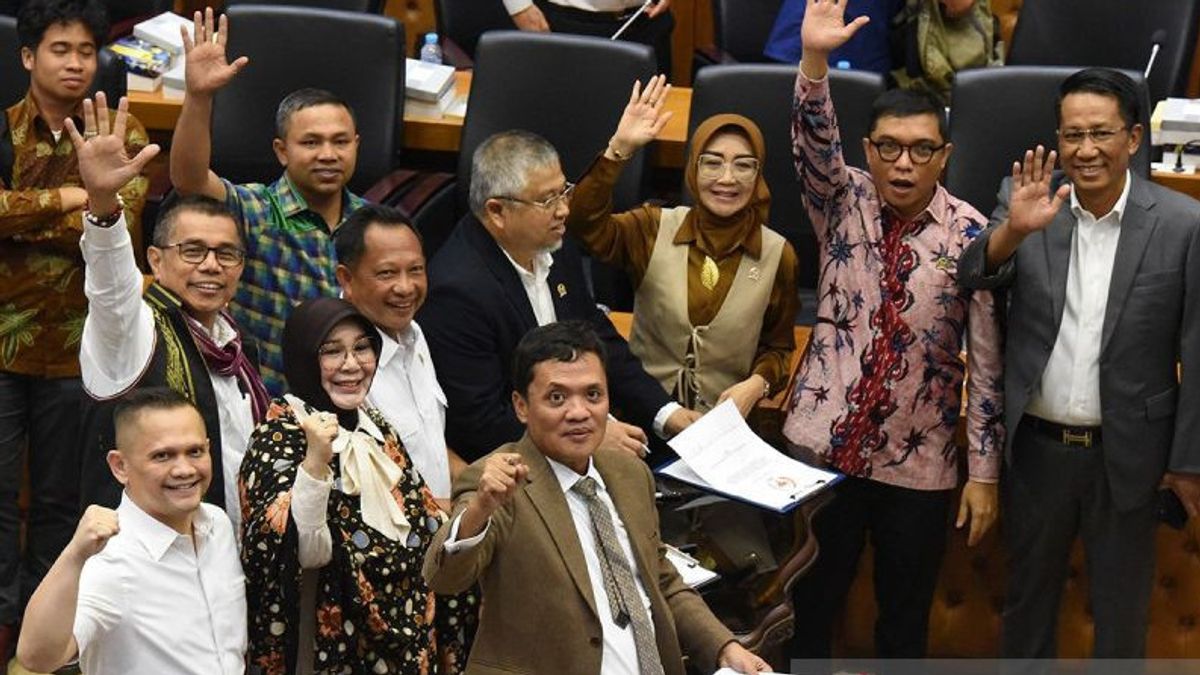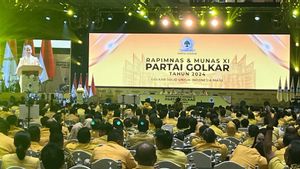JAKARTA - Professor of Constitutional Law at Padjadjaran University Prof. Susi Dwi Harijanti stated that disobedience to the decision of the Constitutional Court did not comply with the legal state principles adopted by Indonesia.
"In my opinion, disobedience to the Constitutional Court's decision, which aims to ensure fair elections, will be addressed by several elements of society as an act that does not comply with the principles of the state of law," said Susidilansir ANTARA, Wednesday, August 21.
According to him, the principle of the legal state has been strictly regulated by the constitution. "The Indonesian state is a state of law," reads Article 1 paragraph (3) of the 1945 Constitution of the Republic of Indonesia (UUD NRI).
The statement was made by Susi in response to the possibility of legislators, namely the government and the DPR, reneging on the decision of the Constitutional Court which was read out on Tuesday (20/8).
The Legislation Body (Baleg) of the DPR and the government have agreed to continue discussing the Draft Law on the Fourth Amendment to Law Number 1 of 2015 or the Pilkada Bill at the nearest DPR plenary meeting to be ratified into law.
The approval was agreed at the Working Committee Meeting (Panja) of the Pilkada Bill of the Legislation Body of the DPR RI at the Parliament Complex, Senayan, Jakarta, Wednesday.
Eight factions in the Legislative Council of the House of Representatives have agreed to further discussions on the Pilkada Bill. The eight factions included the Gerindra Party faction, Democratic Faction, Golkar Faction, PKS Faction, NasDem Faction, PAN Faction, PKB Faction, and PPP Faction, while the PDI-P faction stated that it rejected the discussion of the Pilkada Bill to be promulgated.
SEE ALSO:
Meanwhile, the government represented by the Minister of Home Affairs Tito Karnavian expressed his approval for the Pilkada Bill to be finalized.
There are two crucial materials for the Pilkada Bill that were agreed upon in the Panja Meeting of the Pilkada Bill.
First, regarding the adjustment of Article 7 of the Pilkada Law related to the terms of age of candidacy in accordance with the decision of the Supreme Court (MA).
Article 7 paragraph (2) letter e, agreed to be at least 30 years old for candidates for governor and deputy governor candidates, as well as 25 years for candidates for regents and candidates for deputy regents as well as candidates for mayor and vice mayor candidates as well as the inauguration of elected pairs.
In fact, the Constitutional Court in its legal consideration of Decision Number 70/PUU-XXII/2024, emphasized that the calculation of the age requirements for regional head candidates must be calculated since the determination of the candidate pair, not when the elected candidate pair is appointed as regional head.
Second, regarding the amendment to Article 40 of the Pilkada Law related to the threshold for nominating regional heads, by accommodating only a portion of the Constitutional Court's decision.
The English, Chinese, Japanese, Arabic, and French versions are automatically generated by the AI. So there may still be inaccuracies in translating, please always see Indonesian as our main language. (system supported by DigitalSiber.id)














